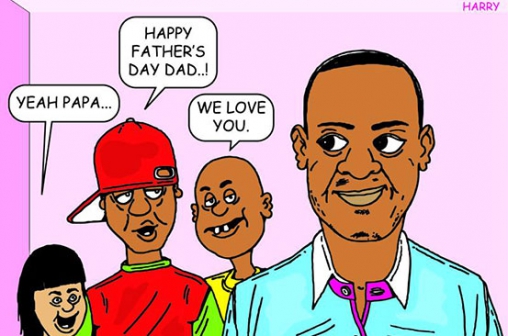×
The Standard e-Paper
Home To Bold Columnists

I did not know of the very existence of a Father’s Day until my editor called a few days ago and suggested that I dedicate this week’s column to its edification.
I was a bit alarmed because for a global entity to decide to dedicate a day to a matter or an issue suggests that it is in some sort of danger and humanity therefore needs to be reminded of its importance.